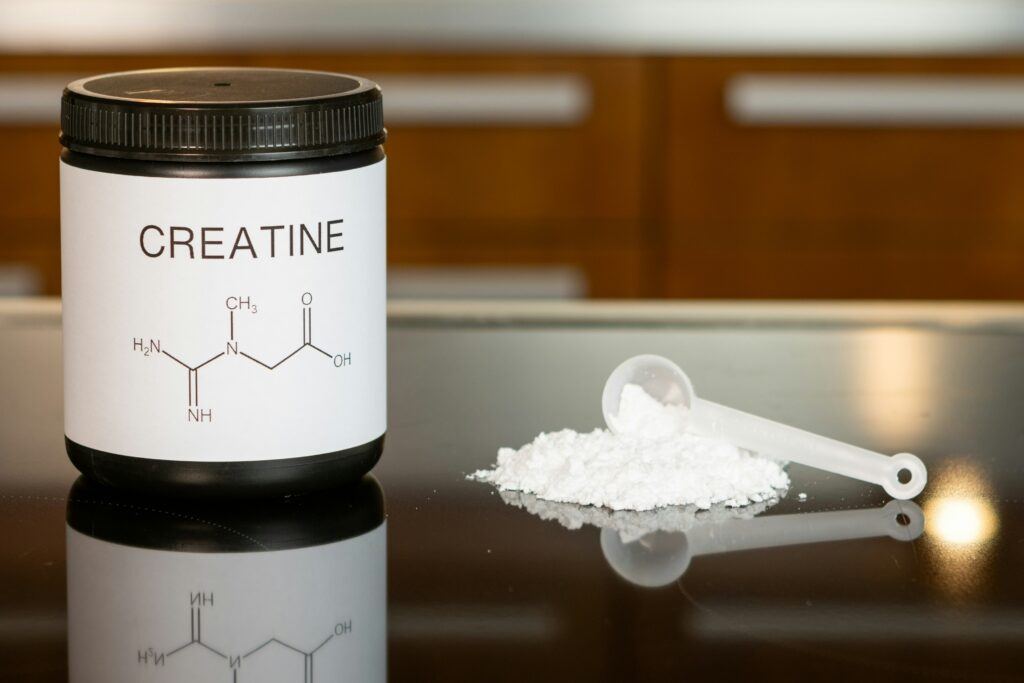Creatine has become one of the most talked-about supplements in fitness and sports today. I constantly notice questions about whether it’s really worth using, what the science says about its effects, and whether it makes sense for regular folks or just athletes who compete at an elite level. If you’re unsure about adding creatine to your routine, checking out the actual research can help you make an informed call without buying into the hype or getting side tracked by rumours.

Understanding Creatine: What It Is and How It Works
Creatine is a natural substance found mostly in muscle cells. Its main job is to help your body produce energy quickly during intense activity, like weightlifting or sprinting. Most people get creatine from foods such as red meat and fish, but fitness fans often turn to supplements for an extra boost. Creatine monohydrate is the most widely used and researched form; it’s cost-effective and easy to find for nearly everyone.
The way creatine works is straightforward. It helps your muscles replenish ATP, which is the body’s quick-use energy source for things like heavy lifts, HIIT, or short sprints. When you supplement with creatine, your muscles can stock up on this energy source, which may lead to better performance, quicker recovery, and even a little extra stamina during repeated workouts—especially if you’re training hard multiple times a week.
People sometimes miss that creatine isn’t only about gym performance. It plays a big part anywhere bursts of strength or speed are needed whether you’re an athlete or just want to make daily activities a little easier. The science supports its roles in energy production and muscle repair for a wide range of users.
The Research: What Studies Really Say About Creatine
Creatine is among the most studied sports supplements on the market. Thousands of peer-reviewed papers dig into its effects on strength, muscle growth, brain health, and more. Here are the main findings from reputable sources, including the Journal of the International Society of Sports Nutrition and peer-reviewed medical research:
- Muscle and Strength Gains: Consistent creatine use is linked to greater muscle growth and strength, especially when paired with resistance training. This holds true for both beginners and experienced athletes.
- Better High-Intensity Performance: Sports and workouts involving bursts of effort—like sprints, football, or CrossFit—often see the best results. People notice more reps, improved power, and extra endurance under heavy loads.
- Brain Benefits: Some research shows creatine may support cognitive health, especially during mental fatigue or sleep loss. Early studies suggest benefits for certain neurological conditions, but research is ongoing.
- Faster Recovery and Reduced Fatigue: There’s growing support that creatine aids muscle recovery after strenuous exercise, shrinks muscle damage, and minimizes that “wiped out” feeling after tough back-to-back sessions.
Even though the actual boosts in strength and endurance are usually modest, they are real and can add up over time. If you’re looking to get a little more from your gym work, creatine can help. It’s not a cure-all, but it gives solid, steady improvements that matter to many people.
How to Use Creatine Safely: Dosing and Timing Tips
Getting started with creatine is easy. Here’s the best way to roll it into your plan:
- Loading Phase (Optional): Take about 20 grams per day for 5 to 7 days, split into four servings of 5 grams. This fills up your muscles quicker, but you don’t have to start this way; you can jump right to daily dosing if you prefer a slower approach.
- Maintenance Phase: Take 3 to 5 grams per day. Keeping this steady day after day delivers results, no need to ramp up or taper off.
Mix creatine with water, juice, or your usual post-workout drink. Timing isn’t strict—before, after, or even during a meal all work. Some find that pairing it with carbohydrates helps absorption, but the most important factor is simply taking it regularly.
Remember to drink extra water. Since creatine draws water into muscles, a little bump in weight or mild bloating can happen at first. That’s normal and tends to settle within a week or two.
Key Benefits of Creatine Supplementation
It’s not only advanced lifters or competitive athletes taking creatine—people of all backgrounds are seeing reasons to try it. Here are the top perks:
- Strength Boost for Everyone: Even if you’re just starting out, you may notice more progress in your lifts and overall performance. That keeps motivation high when training results slow down.
- Easy to Access: Creatine monohydrate is widely available, and no prescription is needed. It’s simple to add to any fitness plan.
- Steadier Energy for Sports: If your sport or workout features repeated sprints or explosive movements—like soccer, basketball, or HIIT—you’ll likely feel less fatigue and stronger late in your sessions.
- Mental Edge: Some studies suggest benefits for focus and mental energy, especially if you’re sleep-deprived, under stress, or looking for a little push to get through a tough day.
- Very Affordable: Among supplements, creatine is one of the cheapest options. Bulk containers can last months, costing just cents per serving.
Possible Downsides and Myths Around Creatine
No supplement is perfect, so it’s smart to know what side effects might show up:
- Water Retention: Most people gain a pound or two in the first week. This isn’t extra fat—it’s water pulled into your muscles, so there’s no reason to worry about body composition.
- Digestive Discomfort: Rarely, people experience an upset stomach or bloating on large doses. Splitting your daily serving into smaller two or three portions or mixing it extra well typically solves this.
- Kidney Health Concerns: Old myths say creatine hurts your kidneys, but studies among healthy people show this isn’t the case. Still, if you have kidney issues, ask your doctor first.
- Consistency Matters: You won’t get the full effect if you only take creatine on your workout days. Daily use keeps your muscle stores high and steady, which is when the benefits really show up.
Should Everyone Use Creatine?
Creatine isn’t a must-have for everyone. People who don’t do intense training (like lifting, sprinting, or HIIT) might not notice improvements, while vegetarians and hard-gainers often benefit more since they get less naturally in their diets. Teens, young kids, and anyone pregnant or breastfeeding should hold off, since research in these groups is limited. It’s always smart to check in with a physician if you have any health conditions or take medications.
Things to Consider Before Buying Creatine
- Product Quality: Picks that pass third-party tests (NSF, Informed Sport) cut out unwanted fillers and contaminants for peace of mind.
- Mixability: Some products dissolve better than others; micronized powders are usually the easiest to blend into drinks without grit.
- No Special Gender Formulas: The same creatine works for men and women; there’s no need to buy gender-specific blends.
- Best Bang for Your Buck: Skip flashy “advanced” creatines unless you have specific likes. Pure monohydrate in bulk is a proven, budget-friendly choice for most users.
Short and Long-Term Safety
For healthy adults, taking creatine is considered safe for both short-term and long-term use. Most side effects, such as mild water retention or rare digestive discomfort, can be managed easily by adjusting dosage or drinking more fluids. Keeping your doctor in the loop, especially if you take other medications, adds an extra layer of confidence as you move forward. Personally, after years of use, I’ve found it reliable, and many others report the same—but everyone should listen to their own body.
Frequently Asked Questions About Creatine
Question: Do I need to cycle creatine, or stop after a few months?
Answer: Research says there’s no need to cycle on and off. You can take it year-round, though occasional breaks are fine if you prefer.
Question: Will creatine make me bulky or cause my muscles to look puffy?
Answer: Some initial water retention is common, but it’s not true bulk and not the “soft” look some worry about. Muscles mostly pull in water beneath the surface, giving a fuller but not bloated look.
Question: Can I take creatine with other supplements?
Answer: Yes, creatine blends easily with other popular supplements, such as protein powders or amino acids. Go for unflavored options for the smoothest mixing experience.
Question: Is creatine safe for women?
Answer: Studies show that creatine works the same in women and men; there’s no evidence of unique side effects.
Question: How soon will I notice results?
Answer: With a loading phase, people may spot results within seven days. Without it, most see progress after 2–4 weeks of steady use.
Wrapping Up: Is Creatine Worth Checking Out?
Creatine stands out as one of the most reliable and affordable ways to give your training a boost. Whether you’re a weekend athlete or just want a little edge in your routine, the research strongly supports its regular use. For most, the upsides are clear, and the risks are very low—especially when you use a reputable product and keep your water intake up.
If you’re putting in the work at the gym, want to see continued progress, or just want a tried-and-true supplement to help take your performance up a notch, creatine is definitely worth tracking down. Questions or need personal advice? Reaching out to a sports nutritionist or dietitian can point you in the right direction. Though no supplement replaces good training and nutrition, for a lot of folks, creatine makes a noticeable, positive difference while being easy on your wallet.
Thanks for checking this post out feel free to to leave a comment, ask questions and be sure to look on the other posts for everything fitness.


